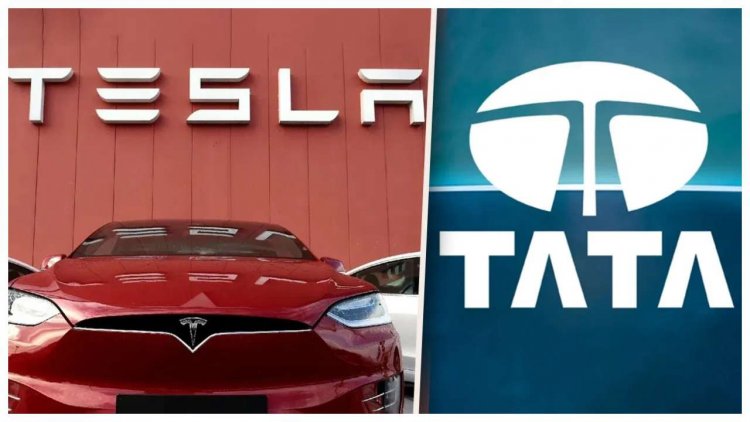Tata-Tesla Deal: Big Strategic Implications for India in Semiconductors
STORIES, ANALYSES, EXPERT VIEWS

The first semiconductor chip from the new plant being set up by the Tata Group and Taiwan’s Powerchip Semiconductor Manufacturing Corporation (PSMC) in Gujarat’s Dholera, will be ready to roll out by the end off 2026, according to Frank Huang, chairman of PSMC. The central and state governments are together estimated to subsidise up to 70% of the project cost, with the Dholera unit slated to become India’s first commercial semiconductor fab.
India increases its strategic heft
But even before this, Tata Group firm Tata Electronics is understood to have signed a strategic deal with Tesla to procure semiconductor chips for its worldwide operations.
This is a proud moment for Tata, writes ET Online “and an important milestone for India. With chips made by an Indian company powering cars Tesla makes globally, India has come of age. Taiwan, China and South Korea have dominated chip supplies to global manufacturers and India will soon join that league. However, even more important is the strategic heft this and similar such deals to come in future will bring to India.
“Dependence of global manufacturers for chips on a country brings that country strategic power. China, on account of its own manufacturing volume of chips as well as of Taiwan which it vows to capture, has held great power over the rest of the world. As the Western world estranges from China, it is desperately pouring money into chip manufacturing to free itself from the dependence on China.
“The reported Tata-Tesla deal can begin a trend that can add to India's influence with other countries, small as well as big.”
It is important to note Commerce Secretary Gina Raimondo at a Senate hearing in 2020 said in the context of the Ukraine war: ‘There are 250 chips or more in every Javelin [missile] launching system.’ This realisation of strategic dependence for chips mainly on Taiwan, China and South Korea ultimately led to the US deciding to put $52 billion into boosting domestic semiconductor manufacturing.
India too followed suit soon and decided to pour $10 billion as incentives into semiconductor manufacturing. Tata's chip plants coming up in Gujarat and Assam are the result of the Production-Linked Incentive (PLI) scheme.
If India is able to create a sizable capacity in making mature or legacy chips, which don't require too much innovation, ET Online writes “it can not only achieve self-reliance but can also turn into a reliable supplier to bigger countries which would prefer to focus on advanced chips.”
The reported Tata-Tesla deal shows the way to this future.
















